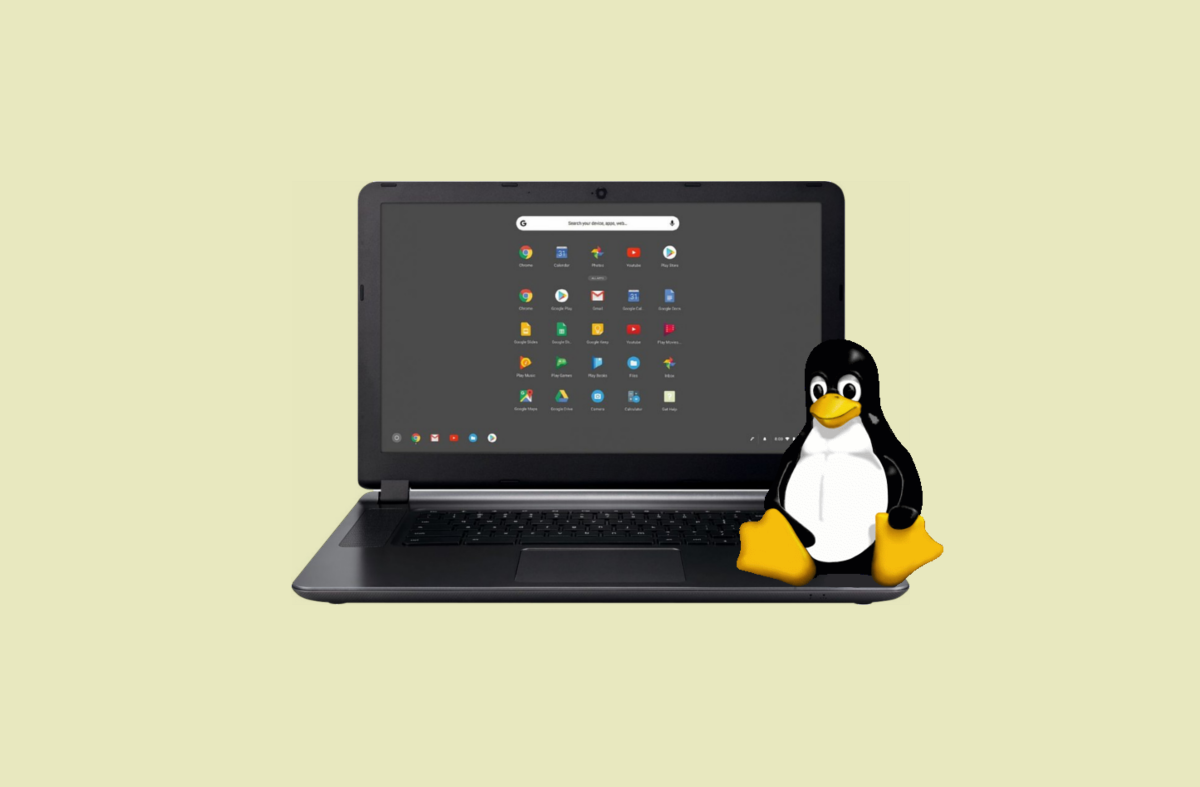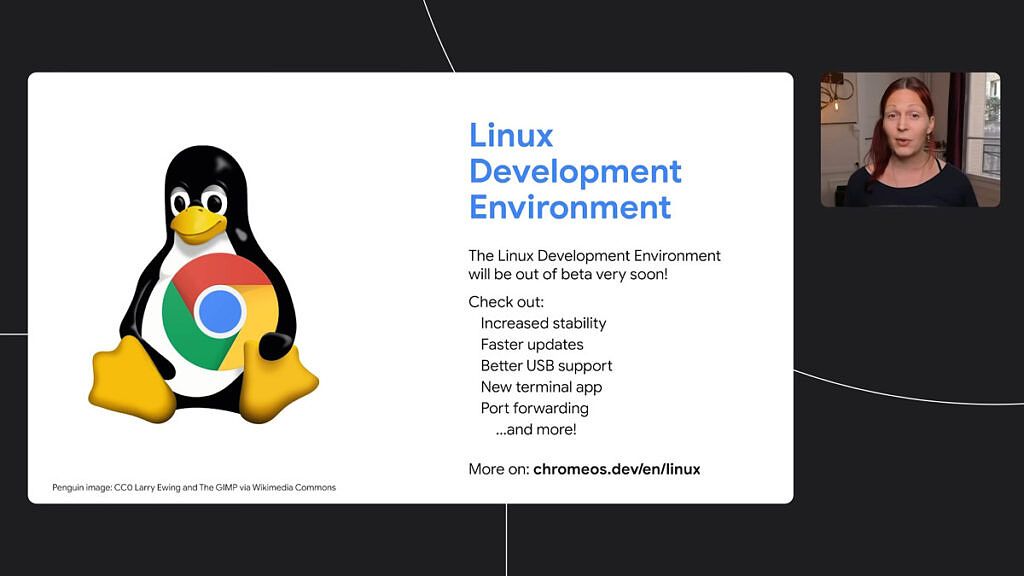Chrome OS has come a long way since it was introduced by Google as a "web-first" operating system in 2011. Over the course of the last few years, Google enabled support for Android apps on the platform, bringing the massive Google Play catalog of apps over to Chromebooks. And more recently, Linux app support was added to capable Chromebooks as well. Linux app support is currently in beta, but developers will be glad to know that the next release of Chrome OS will see Linux support graduate from beta.
Google announced in the "What's new in Chrome OS" talk during Google I/O 2021 that Linux app support for Chrome OS, code-named "crostini", will graduate from beta to stable status with the next stable OS release. The next stable release of Chrome OS will be Chrome OS 91, scheduled for release during the week of June 1st. That means Linux app support has reached a point where Google considers it safe for every developer to use if their Chromebook is compatible.
Linux app support for Chromebooks was launched back at Google I/O 2018 and has seen several improvements since its initial release. It has received full USB support, experimental GPU support, multiple terminal UI changes, and even full upgrades to the underlying Linux distribution.
On top of the stable release of Linux apps for Chrome OS, Google has also confirmed that it will roll out an update to the Android version found in most Chromebooks. Chromebooks with Android app support will see their Android versions upgraded from Android 9 Pie to Android 11, a rollout that has already begun for many models. Along with bringing support for new platform features like dark mode support, the move also changes how the underlying Android integration works. Instead of existing in a container, Android will now be put into a high-performance, secure virtual machine which Google says will increase the velocity of Android updates and reduce divergence from the mainstream.
Google is pouring effort into making Chrome OS more feature-rich and akin to other, more fully-featured operating systems, and we're all here for it.


